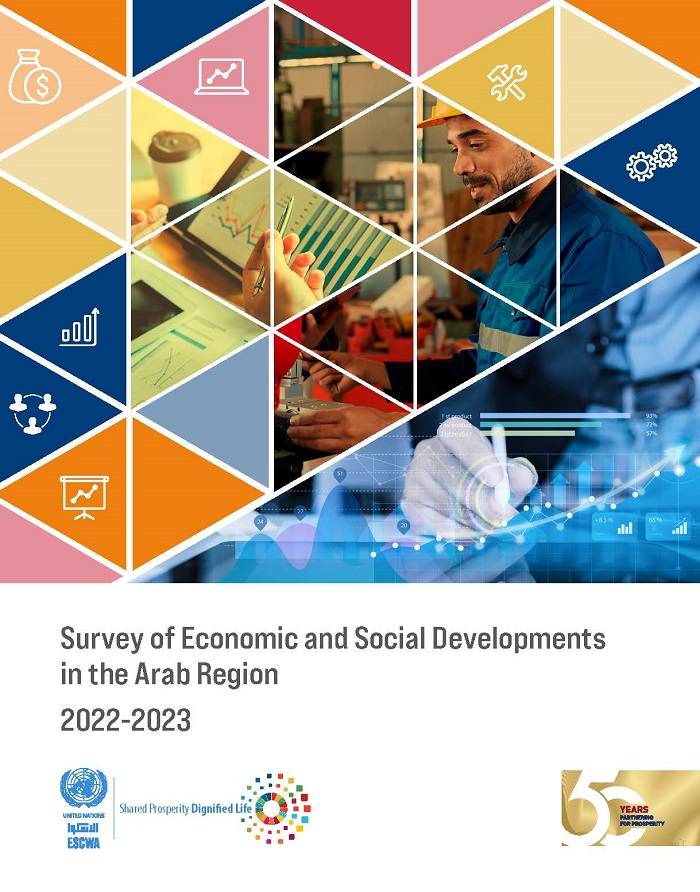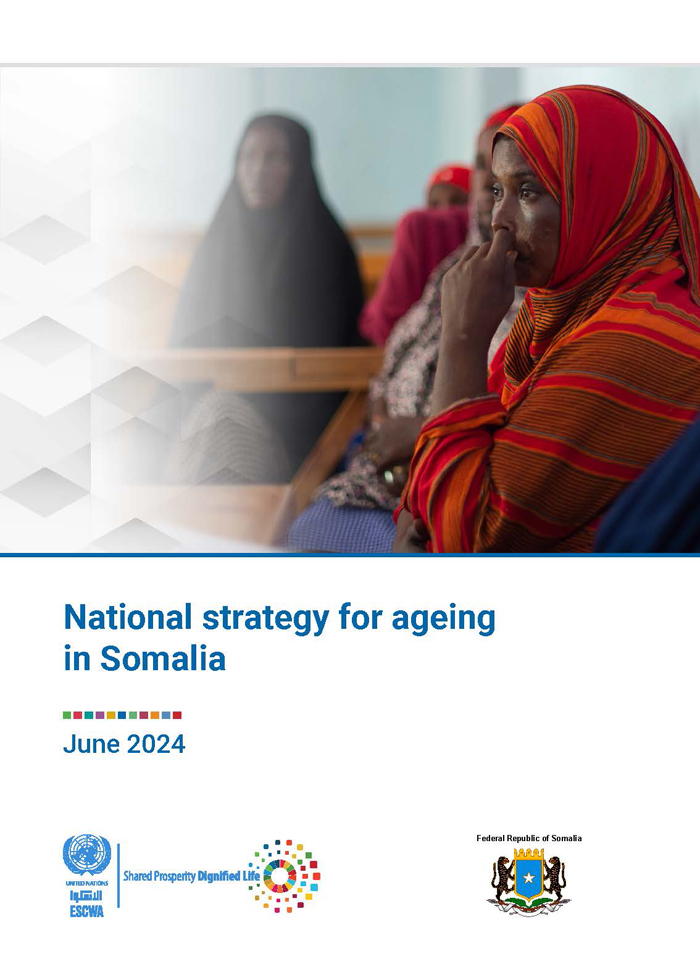
ESCWA Publication: E/ESCWA/CL3.SEP/2023/4
Country: Arab region
Publication Type: Flagship publications
Cluster: Shared Economic Prosperity
Focus Area: 2030 Agenda, Debt and fiscal policy, Financing for development, Inclusive development, Macroeconomics
Initiatives: Arab Financing for Development Gateway, Artificial intelligence & big data, Debt Optimization to Enhance Fiscal Space, Financial & macroeconomic statistics for National accounts, Social Expenditure Monitor for Arab States, Public finance and inclusive fiscal policy
SDGs: Agenda 2030
Keywords: Economic development, Social development, Political conditions, Foreign exchange rates, Inflation, Petroleum, Petroleum prices, Natural gas, Phosphates, Food security, Food prices, Financing, Gross domestic product, Economic growth, Interest rates, Foreign trade, Armed conflicts, War, Covid-19, Recovery, Poverty, Resilience, Gender equality, Women's health, Women's education, Women's advancement, Women in politics, Women's employment, Informal sector, Unemployment, Internal migration, Statistical data, Arab countries, Territories occupied by israel, Gulf states
Survey of Economic and Social Developments in the Arab Region 2022-2023
April 2024
The 2022-2023 edition of the Survey of Economic and Social Developments in the Arab Region presents the economic recovery path at the global and regional levels following the COVID-19 pandemic and the war in Ukraine. A lot of uncertainties cloud the outlook as developed countries face increasing risks of falling in a recession and are resorting to increase interest rates to mitigate rising inflation, while developing countries are suffering from increasing borrowing costs, high inflation and uncertainties about energy and food prices. In addition to that, some Arab countries are facing depreciation of local currencies, repercussions of natural disasters, war and occupation, political instability and structural economic challenges. In terms of social developments, the Arab region continues to face significant challenges including widespread poverty, high unemployment and large gender gap.
The thematic chapter of this year’s survey focuses on inflation in Arab countries and examines the sources of inflation in six countries that have recorded high inflation rates in the past few years, namely Egypt, Lebanon, the Sudan, the Syrian Arab Republic, Tunisia and Yemen. It also presents the different disinflation policies available and provides some recommendations on the way forward.
Related content
2030 Agenda
, Debt and fiscal policy
, Financing for development
, Inclusive development
, Macroeconomics
,
The 2022-2023 edition of the Survey of Economic and Social Developments in the Arab Region presents the economic recovery path at the global and regional levels following the COVID-19 pandemic and the war in Ukraine. A lot of uncertainties cloud the outlook as developed countries face increasing risks of falling in a recession and are resorting to increase interest rates to mitigate rising inflation, while developing countries are suffering from increasing borrowing costs, high inflation and uncertainties about energy and food prices. In addition to that, some Arab countries are facing depreciation of local currencies, repercussions of natural disasters, war and occupation, political instability and structural economic challenges. In terms of social developments, the Arab region continues to face significant challenges including widespread poverty, high unemployment and large gender gap.
The thematic chapter of this year’s survey focuses on inflation in Arab countries and examines the sources of inflation in six countries that have recorded high inflation rates in the past few years, namely Egypt, Lebanon, the Sudan, the Syrian Arab Republic, Tunisia and Yemen. It also presents the different disinflation policies available and provides some recommendations on the way forward.



